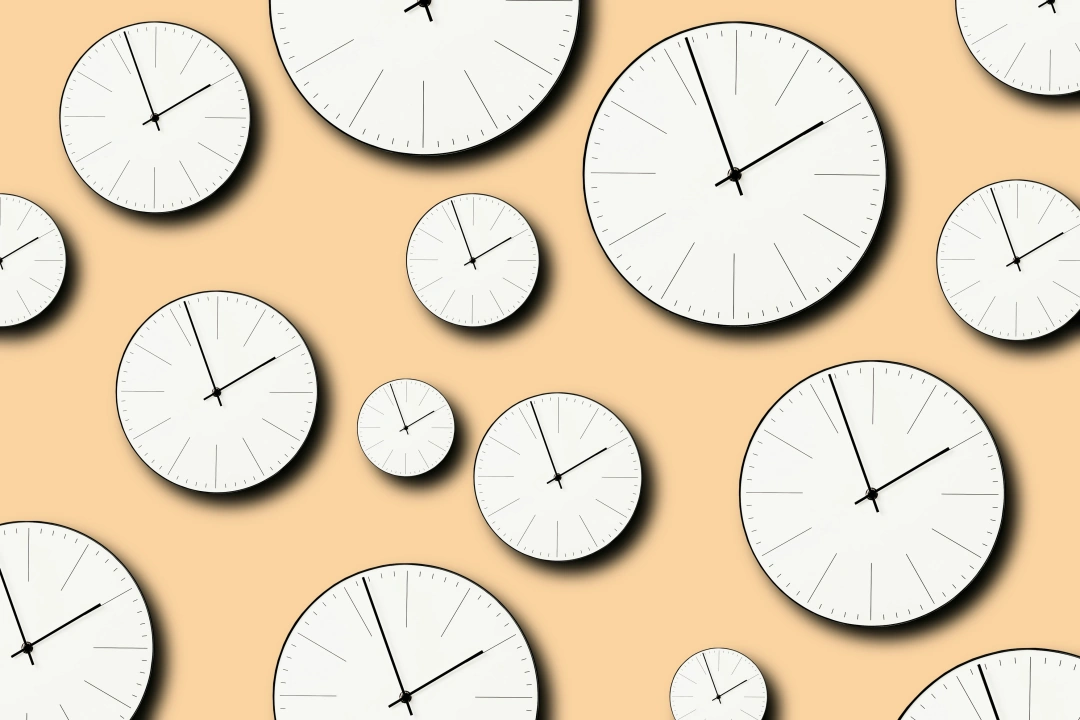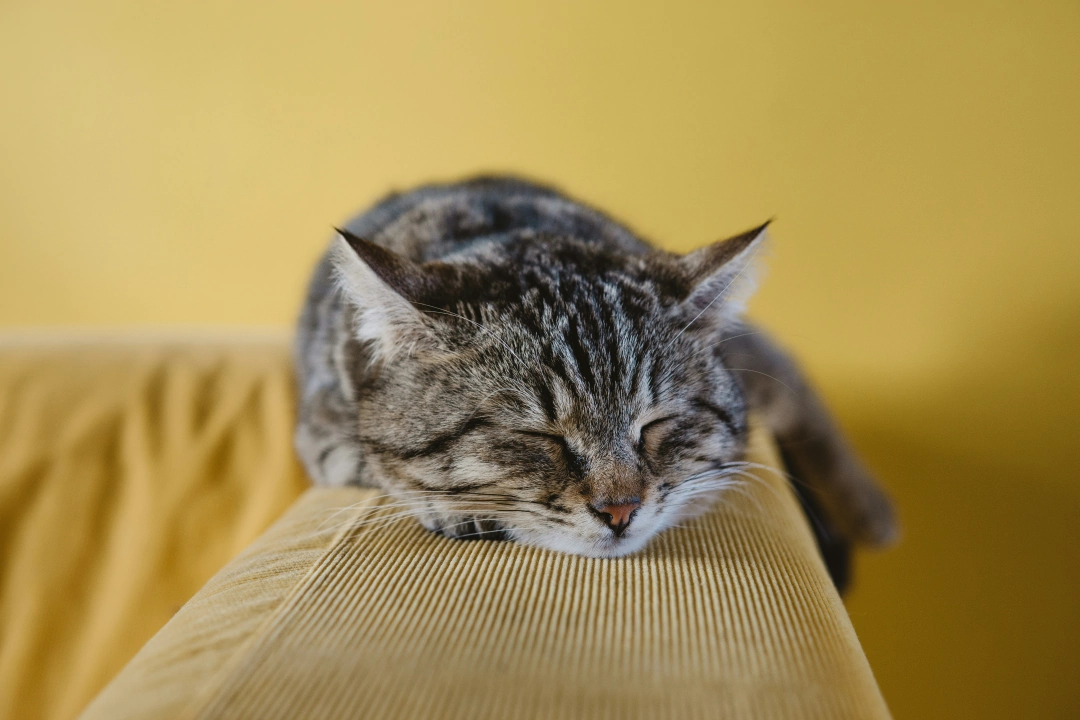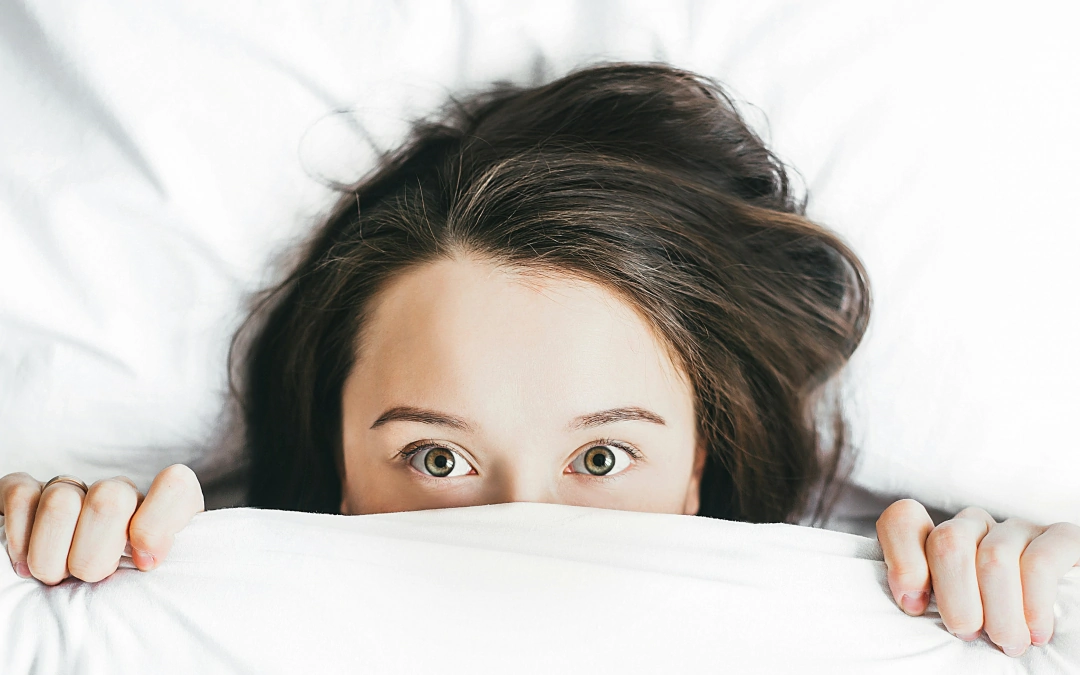These sleep hacks work like a charm—without medication or supplements.
A few years ago, I started waking up at three o’clock every morning. Over the years, I’d read many articles about the importance of rest, so I knew the research was unequivocal: Quality sleep supports cognitive performance and lowers the risk of diseases and health conditions such as type 2 diabetes, heart disease, stroke, obesity, and dementia.
Knowing that, I’d toss and turn in bed, disappointed that I wasn’t following through on my plan to get seven to eight hours of shut-eye. It was on my schedule, so why wasn’t I asleep?
Sleeplessness among adults is common: The CDC reports that in 2020, 14.5 percent of U.S. adults struggled to fall asleep, and 17.8 percent couldn’t stay asleep. Naturally, a wave of sleep “cures” has hit the market—everything from teas and sleep concoctions to supplements and hormones.
In our quest for a good night’s sleep, many of us are quick to turn to quick fixes that are really just distractions. But the root cause of insomnia is rarely biological, even for people diagnosed with chronic insomnia.
When I was experiencing sleeplessness, I couldn’t help that my body chose to wake me up. But I could control what I did in response. Thankfully, I found a sleep hack more effective than magnesium, lavender, or the Sleepy Girl Mocktail (though I’m tempted to try it).
Rather than reaching for pills and potions, I found a better way.

Why You Can’t Sleep
I’m sure you’ve heard all the sleep advice: Don’t drink caffeine within 10 hours of bedtime. Exercise. Get a blood test to check whether you have a vitamin D or B12 deficiency, and take vitamins or adjust your diet if you do. No screens within an hour of bedtime. Cut alcohol, etcetera, etcetera.
But chances are, you likely suffer from the most common cause of sleeplessness: worry.
When I first started waking up at 3 a.m., I did what many of us do when things don’t go as planned: I freaked out.
I’d lie in bed, thinking about how bad it was that I wasn’t sleeping and how groggy I was going to feel in the morning. Then, I’d start thinking of all the things I had to do the next day. I’d mull over these thoughts until I could think of nothing else. Ironically, I wasn’t falling asleep because I was worried about not falling back asleep.
Rumination is a common cause of insomnia. That’s why the standard treatment for insomnia is cognitive behavioral therapy, as it teaches people to lower their anxiety over not sleeping.
When your mind is constantly racing, falling asleep becomes impossible. Instead of trying to force sleep, focus on breaking the cycle of rumination. That starts with simply accepting the sleep you get.
Think Differently to Sleep Differently
People who don’t think they get the prescribed seven to nine hours of sleep a night tend to jump to the conclusion that they have serious insomnia or some underlying health issue.
Yet new research might make you feel better about the sleep you get.
New studies—which applied more electrodes to measure participants’ brain activity than general sleep studies do—have discovered that insomnia is a “spectrum.” You may just sleep differently than the traditional perception of what’s “good” sleep.
Slow brain waves are typically associated with deep sleep. Yet one study showed that some sleepers experience high brain activity that makes them feel as if they’re awake even though they’re not. In the study, 20 “good sleepers” and 10 people with sleep misperception underwent high-density electroencephalogram sleep recordings, and researchers woke them up after every 10 minutes of consolidated NREM or REM sleep to ask them about their subjective sleep depth—aka their perception of how well they slept. Researchers found that the subjective sleep depth of people with sleep misperception was “abnormally low” during REM sleep.
Another study similarly showed that patients with insomnia underestimate how much sleep they get because, unlike “good sleepers,” they feel awake after the first sleep cycle and even during REM sleep, and “their mental activity during sleep is also more thought-like.”
The takeaway from these studies is that your perception of how well you sleep may not be a good measure, so your rumination over your lack of sleep may be unfounded. Knowing that your different sleep is okay might be enough to make you feel more relaxed and less anxious about it, which, in turn, should help you relax.
As sleep researcher Geoffroy Solelhac of the Center for Investigation and Research in Sleep in Switzerland said, “Just understanding that their sleep is objectively different is reassuring to patients. They feel a sort of relief.”
Still, there are a few other tricks for calming down when you are awake at night.

Sleep Hacks to Beat Sleeplessness
A Boring Book
The best sleep aid I’ve ever used isn’t melatonin or chamomile tea, it is a boring e-book. The key is to choose a slightly interesting yet mostly snooze-worthy topic. Pretty much any subject works for me as long as it’s not a thriller or horror. Philosophy tends to do the trick particularly well, but you may want to find your own genre of choice.
A boring book redirects your focus away from your worries and repetitive thoughts. It’s cognitively demanding enough to keep your mind off your own ideas while trying to follow the author’s reasoning. This disrupts the cycle of rumination, allowing you to drift off gently—assuming your Kindle doesn’t hit you in the face when you start dozing. (Hint: I’ve learned to read on my side to avoid this rude awakening.)
In the past, I would pick up my smartphone and find myself checking email or scrolling social media. This was a big mistake! Smartphones have the opposite effect and tend to keep you checking and pecking at your screen late into the night.
Now when I wake up or can’t sleep due to my racing mind, I pick up my Kindle, which, with its backlit non-blue light screen, doesn’t disturb my wife like reading a paper book would. Also, I think of waking up in the middle of the night as a pleasant opportunity to catch up on some reading, and I’ve stopped worrying about when I’ll fall back asleep. I assure myself that if I’m not tired enough to fall asleep right at that moment, it’s because my body has already gotten enough rest. I let my mind relax without worry and typically fall asleep in minutes.
A Mantra for When You Wake Up
The more you stress about achieving perfect sleep, the harder it becomes to attain it. To significantly reduce anxiety, accept that occasional wakefulness during the night is normal. Typically, if you don’t get good sleep one night, your body will naturally compensate the next night.
If I wake up, I repeat the simple mantra, “The body gets what the body needs if you let it,” and inhale a few deep breaths, which usually lull me back asleep in minutes. That subtle mindset shift relieves the pressure by no longer making sleep a requirement. My job is to provide my body with the proper time and place to rest, which means sticking to a consistent device-free bedtime.
Consistency
Establishing a consistent, relatively early bedtime is one of the most beneficial things you can do for your sleep. You might even timebox your sleep and allow the calendar reminder to alert you to wind down an hour before bed.
Sticking to the same early bedtime regulates your body’s internal clock, gives you enough time to sleep, and promotes better sleep quality. This is often the most effective way to get the rest you need. Just go to bed already! Don’t stay up and doom-scroll or watch one YouTube video after another.
Track Your Sleep
Free Habit Tracker
Design your ideal day and build your best life.
Your email address is safe. I don't do the spam thing. Unsubscribe anytime. Privacy Policy.
As the studies above show, your perception isn’t a great judge of your sleep quality. Most of us have no idea how well we’re sleeping. For obvious reasons, we’re only aware of the times we wake up rather than the time we’re asleep.
I thought I was getting a bad night’s sleep, which caused me to worry more, night after night. When I finally started wearing a sleep tracker, I learned that my sleep score wasn’t that bad, and that reassurance helped me to sleep soundly.
We are highly affected by our belief in how we sleep. A 2014 study found that our belief in how well we sleep affects our cognitive functioning more than how well we actually sleep.
In the study, researchers had 164 people rate their quality of sleep the night before. Next, the researchers told the participants they would use a new, as yet unproven technique to measure their REM sleep retroactively the night before.
This “technique” was fake, unbeknownst to the participants. In fact, researchers randomly assigned good or bad sleep quality to the participants, who were then asked to complete attention and memory tests.
The results showed that participants who were told they had slept poorly, even if they’d rated their sleep quality as high, exhibited impaired cognitive performance on tests. The reverse also occurred: People who reported poor sleep but were told they slept well performed better.
Using a sleep tracker might help build your belief that you’re sleeping just fine, which will end your rumination over the “bad sleep” you’re getting.
Experiencing insomnia can feel overwhelming and unending, but here’s a reason not to lose hope: According to a two-year study of 1,435 adults, while about 25 percent of Americans experience acute insomnia each year, about 75 percent of them recover from it.
Once my rumination over sleep stopped, so did my sleepless nights.
There’s an important lesson here that goes well beyond how to get enough sleep. The takeaway is that we should stop worrying about the outcomes we can’t control and instead focus on the inputs we can.
Before popping pills or messing with your hormones, get to bed at the same time each night. If you do wake up, repeat the mantra, “The body gets what the body needs if you let it,” and have a boring e-book ready. Finally, track your sleep to see if you’re really sleeping poorly or just remembering the times you woke up. Try these sleep hacks for a few months, and you’ll start seeing a difference. Night, night!
Related Articles
- Schedule Maker: a Google Sheet to Plan Your Week
- Habit Tracker Template in Google Sheets
- The Ultimate Core Values List: Your Guide to Personal Growth
- Timeboxing: Why It Works and How to Get Started in 2024
- An Illustrated Guide to the 4 Types of Liars
- Hyperbolic Discounting: Why You Make Terrible Life Choices
- Happiness Hack: This One Ritual Made Me Much Happier

